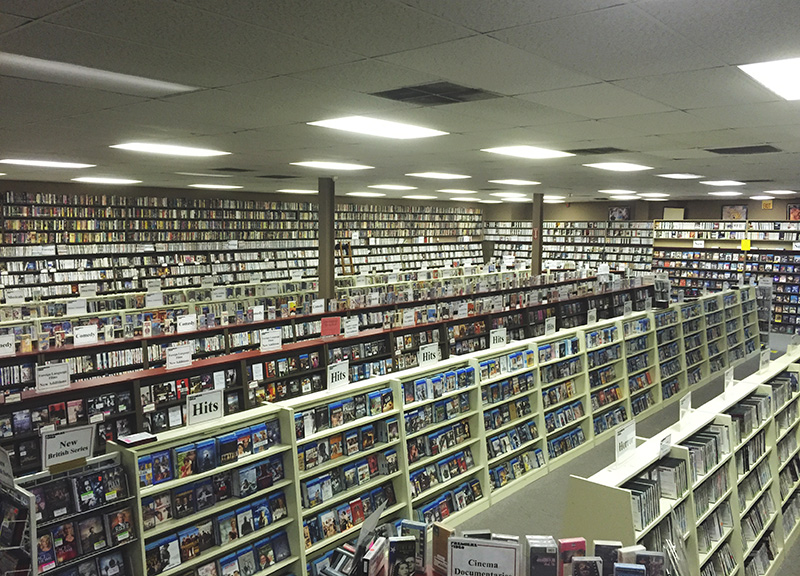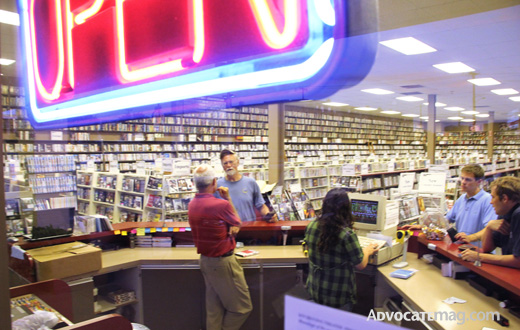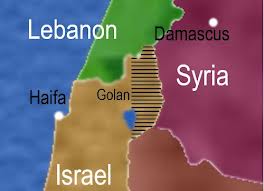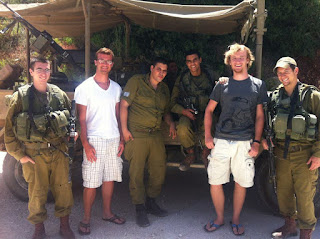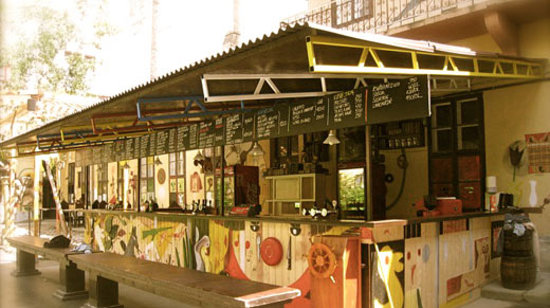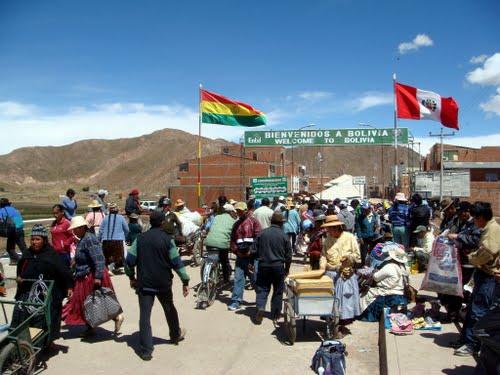Just a boxy little shop tucked in between a Whole Earth Provisions Co and a Burger King, you could pass by Premiere without ever knowing it existed. It's thirty three year run in Dallas makes it the longest lasting rental house in the city. A self-made atmosphere exhibited everything about the shop: laminated suggestion sheets, worn down wire shelving, and late-90's Microsoft computers printed out your receipts. The all-glass store front gives you glimpses into the massive collection inside.
Make no mistake Premiere's collection is prize-worthy. Foreign films dot an entire wall categorized by Nation instead of by name. I didn't know Serbian cinema even existed until I visited this hole-in-the-wall rental store let alone the treasured jewels of Wong Kar-Wai. To tiny little me the shop represented a DVD library only Borges could dream up.
My admiration and love for Premiere grew when I studied film in college. Once I saw Citizen Kane, Bridge on the River Kwai, and other classics I grew to understand the limits of my taste. Why don't I watch French films? or Mexican movies? Whatever happened to all the B movies Quentin Tarantino holds so dear? The limits of online streaming become clear to me the more I realized just how much content is out there. Premiere filled in those gaps for me.
It's the only place I can rent Pedro Almodovar's earliest film or spot a collection of short films to share with my friends. Nowhere else on the Internet could I grab the latest Colombian art drama alongside documentaries about North Korean gender politics. At Premiere nothing is off-limits. It's the only rental store that, infamously, hides it's XXX film collection around the corner. That pretty much cemented Premiere's place in my head as the place to be.
When you walked into Premiere you were guaranteed to find something you liked. Sam Wade, mild-mannered video enthusiast, knew exactly where every movie, tv show, and mini-series belonged. Combing through shelf after shelf of movies, crossing from western classics to the spiritual enlightenment section provided half the fun. Sam recommended quite a few movies to watch and if you didn't know where to start you could always read from one of the several suggestion sheets they offered.
My experience at Premiere Video isn't unique to me alone. It exists as the corner stone of Mockingbird Plaza. It's support of local film and film festivals earmarked it as one of the mecca of movies for cinephiles in Dallas/Ft. Worth. Despite all that, they cater to every audience.
Whether you're a mom looking to rent the latest movie for your kids or a cinephile hunting down a copy of Yasujiro Ozu's early work Premiere had it. It's a shame then, that Premiere disappeared from the Dallas landscape.
One morning I woke up to news that Premiere closed and locked it's door for good. A small sign up front read: "On hiatus. Gone fishing. Thank you for returning your movie!" Mysteriously, Sam closed up shop. Rumors since the closure allude to a bigger, newer store somewhere down the line. Surely someone with a DVD library as vast and comprehensive as Sam Wade's won't go to waste in a warehouse somewhere! The bright red neon sign looms over the building's masthead, but the shelves remain empty. Now us lesser mortals are confined to buy/sell/trade shops with less diverse collections and Netflix.
Premiere tattooed a small mark on my heart endearing itself to me at every turn of my age. From seven to fourteen to twenty one I found something to treasure there. With a manager as nice as Sam Wade, and a staff so knowledgeable of movies I felt at home. Plenty of others did too. Just look at this love letter to the store itself:
There's hope the store will return, in a smaller store front, but for the gap of time without it I'll continue to gripe. Nothing felt more comfortable or thrilling than touring the collection at the video store. We all remember that. So, thank you to Sam Wade and his staff for providing us a rental store that never deigned down on us, never cheated you out of your money, and never lacked a video you needed. The internet may be vast and wide but as long as Netflix uses an algorithm to suggest movies for you (from it's very limited library) I will champion Premiere. I hope some day that store comes back.
To follow Premiere on Facebook visit: https://www.facebook.com/PremiereVideo/


